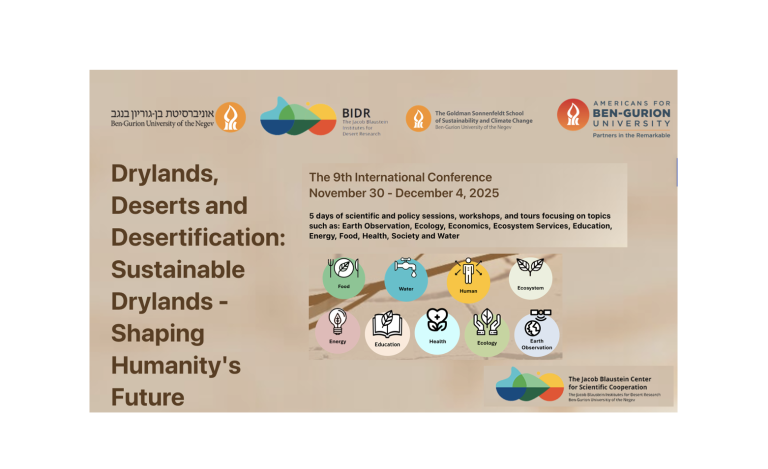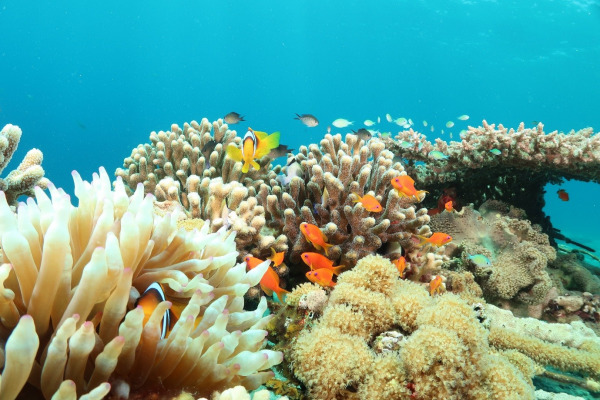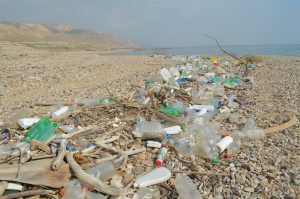Bar-Ilan U. (Israel): International experts call for immediate action to save the world’s most resilient corals

Despite political tensions between countries along the Red Sea, researchers band together to call upon UNESCO to declare the Red Sea’s entire coral reef as a Marine World Heritage Site while recommending additional measures critical for the reef’s survival.
Rapid ocean warming due to climate change poses a serious risk to the survival of coral reefs. It is estimated that 70-90% of all reefs will be severely degraded by mid-century even if the 1.5◦C goal of the Paris Climate Agreement is achieved. There is one coral reef ecosystem, however, that seems more resilient to rising sea temperatures than most others. Corals in the Gulf of Aqaba, at the northernmost portion of the Red Sea, have an unusually high tolerance for the rapidly warming seawater in the region. They withstand water temperature irregularities that cause severe bleaching or mortality in most hard corals elsewhere. This uniquely resilient reef employs biological mechanisms which are likely to be important for coral survival as the planet’s oceans warm.
While the Gulf of Aqaba could potentially be one of the planet’s largest marine refuges from climate change, this unique portion of the Red Sea’s reef will only survive and flourish if serious regional environmental challenges are addressed. In a study just published in Frontiers in Marine Sciences, an international group of researchers outlines these challenges and proposes a number of necessary measures they say must be immediately implemented in order to protect the reef from increasing local threats. Prof. Maoz Fine
The study was led by Dr. Karine Kleinhaus, of the Stony Brook University School of Marine and Atmospheric Sciences, and co-authored by Prof. Maoz Fine, of Bar-Ilan University’s Mina and Everard Goodman Faculty of Life Sciences, along with a group of scientists who have studied the Red Sea’s corals while based in Egypt, Israel, Jordan, Saudi Arabia, Australia, the United States and Switzerland. The Swiss Ambassador to Israel also contributed to the article. The collaboration of these co-authors, despite regional political tensions, underscores the importance of this call for action.
The coral reefs of the Red Sea provide food and a source of livelihood to a rapidly growing population of over 28 million people living along its coastline, and are a uniquely rich potential source of new medicines. However, as towns and cities continue to grow along the Red Sea, these areas generate substantial local pressure on its reefs. Some portions of the reef have already been heavily damaged by uncontrolled tourism, human population expansion, overfishing, and coastal development that has led to pollution and a decline in coastal water quality.
Despite existing environmental stressors and newly emerging threats, there are currently no coordinated scientific research or management efforts that encompass the entire Red Sea reef complex. The researchers assert that the most urgent objective is to advance immediate protection of the Gulf of Aqaba as a World Heritage Site as part of an initiative involving Egypt, Israel, Jordan, and Saudi Arabia. Ideally, they say scientists, conservationists, and policy makers should advocate strongly that UNESCO recognize the Red Sea’s entire coral reef as a Marine World Heritage Site. Regional scientists and governments should work together to implement transnational research, monitoring and conservation efforts and seek UN support for a long-term scientific monitoring program. Considering political realities, the authors affirm that regional collaboration can be effectively facilitated by the Transnational Red Sea Center, a neutral organization which was established in March 2019 and is based at the Swiss Ecole Polytechnique Fédérale de Lausanne (EPFL).
The researchers recommend several additional measures including:
ㆍfull regional cooperation under the directive of high levels of government
ㆍinforming governments of the monetary value and vast medicinal potential of the reef to each nation
ㆍlong-term regional monitoring of the threat to the reefs from new coastal development and the accompanying population expansion
ㆍsustainable development of the Red Sea coastline
“Threats to the Red Sea’s reef in its entirety, and to the uniquely resilient northernmost segment, are escalating, and we will need to work together to preserve them despite the many political and practical challenges. Otherwise, we will have to explain to future generations that we stood by as our generation destroyed one of the last reefs standing,” the authors conclude.




